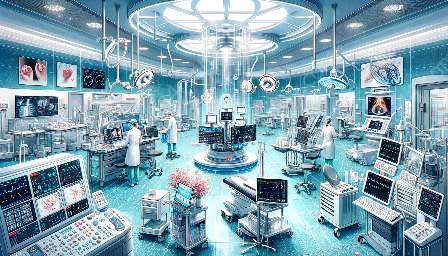Biotechnology has revolutionized the field of medical implants and prosthetics, bringing groundbreaking advancements and improved patient outcomes. Through innovative biotechnological approaches, medical devices are being transformed to enhance functionality, durability, and biocompatibility. This article explores the impact of biotechnology on medical implants and prosthetics, highlighting how these advancements are reshaping healthcare and improving the quality of life for patients.
The Role of Biotechnology in Medical Devices
Biotechnology has significantly impacted the development and enhancement of medical implants and prosthetics. Advanced biotechnological techniques have enabled the creation of sophisticated biomaterials and bioengineered components that closely mimic the natural properties of human tissues and organs. These advancements have led to the development of implants and prosthetics that seamlessly integrate with the body, reducing the risk of rejection and enhancing long-term stability.
Furthermore, biotechnology has facilitated the incorporation of bioactive compounds and cellular components into medical devices, allowing for targeted delivery of therapeutic agents and stimulation of tissue regeneration. This has opened new possibilities for personalized and regenerative medicine, where medical implants and prosthetics actively participate in the healing and regeneration processes within the body.
Enhancing Functionality and Durability
Biotechnology has played a crucial role in enhancing the functionality and durability of medical implants and prosthetics. Through the use of advanced materials and surface modifications, biotechnological innovations have resulted in implants that exhibit improved mechanical strength, corrosion resistance, and wear resistance. This has extended the lifespan of implants and prosthetics, reducing the need for frequent replacements and minimizing the associated risks and costs.
In addition, biotechnology has enabled the development of smart implants and prosthetics incorporating sensors, actuators, and electronic components. These intelligent devices can monitor physiological parameters, provide real-time feedback, and adjust their performance in response to the body's needs. By integrating biotechnology with electronic systems, medical implants and prosthetics are becoming more interactive and adaptive, offering enhanced functionality and precision in their therapeutic interventions.
Advancements in Biocompatibility and Bio-integration
One of the key triumphs of biotechnology in the field of medical implants and prosthetics is the improvement of biocompatibility and bio-integration. Traditional implants often posed challenges related to inflammation, tissue damage, and foreign body reactions. However, biotechnological advancements have facilitated the development of biocompatible materials and surface coatings that promote seamless integration with surrounding tissues and cells.
Moreover, biotechnology has enabled the creation of tissue-engineered implants and prosthetics, where biological components and living cells are incorporated to promote bio-integration and tissue regeneration. These bioengineered constructs emulate the natural extracellular matrix, providing a conducive environment for cell adhesion, proliferation, and differentiation. As a result, patients experience reduced complications and improved functional outcomes following the implantation of these biotechnologically enhanced devices.
Personalized and Precision Medicine
Biotechnology has unlocked the potential for personalized and precision medicine in the domain of medical implants and prosthetics. Through advanced biotechnological techniques such as 3D printing, tissue engineering, and genetic engineering, customized implants and prosthetics can be tailored to match the unique anatomical and physiological characteristics of individual patients. This level of customization ensures optimal fit, function, and aesthetic appearance, leading to improved patient satisfaction and overall treatment outcomes.
Furthermore, biotechnology has enabled the integration of diagnostic and therapeutic functionalities within medical implants and prosthetics, allowing for targeted and precise interventions. By incorporating biosensors, drug delivery systems, and imaging technologies, these advanced devices can monitor health parameters, deliver therapeutic agents, and provide real-time diagnostic information, thereby revolutionizing the way healthcare is delivered and managed.
Challenges and Future Outlook
While the impact of biotechnology on medical implants and prosthetics has been profound, several challenges and opportunities lie ahead. The translation of advanced biotechnological concepts into clinically viable products requires careful consideration of regulatory, ethical, and safety aspects. Additionally, the continuous evolution of biotechnological approaches demands ongoing research, collaboration, and investment to harness their full potential in improving patient care and quality of life.
Looking ahead, the future of medical implants and prosthetics through biotechnology holds great promise. Advancements in areas such as nanotechnology, regenerative medicine, and artificial intelligence are expected to further enhance the performance, biocompatibility, and functional integration of medical devices, paving the way for even more remarkable breakthroughs in healthcare.


